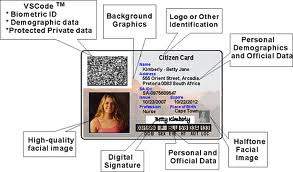A national biometric ID card could cost $22.6 billion to create and another $2.1 billion a year to operate.

Key senators are exploring an immigration bill that would force every U.S. worker—citizen or not—to carry a high-tech identity card that could use fingerprints or other personal markers to prove a person's legal eligibility to work.
In hazily worded language from the senators, the ID cards would also track Americans at airports, hospital and other public spaces – worrying a number of privacy advocates and others concerned with being tracked by the federal government.
The employer would use equipment on its own premises (or those of a third-party credential bureau) to check a person’s fingerprints or other biometric again, and make sure they matched those on the card.
Assuming the biometrics matched, the employer would then check the person's work authorization against a master government database. If the person's biometric failed to match that on the card (perhaps because of a fingerprint error when the card was made), or the master database erroneously reported them as unauthorized to work, they would have to apply to the government bureaucracy to get the problem fixed before being allowed to work again.
A 2012 study conducted by the University of California, Berkeley concluded that the price tag of such a program would be around $22.6 billion to create and another $2.1 billion a year to operate.
The creation of a card and a database that control each individual’s right to work will give the government new leverage over all citizens.
The lawmakers haven't committed to the "biometric" ID card, and are wary of any element that might split the fragile coalition of Democrats, Republicans and outside organizations working toward agreement on a broad overhaul of immigration laws.
But at least five of the eight senators writing the bill have backed biometric ID cards in the past. At least three of them—Sens. Lindsey Graham (R., S.C.), John McCain (R., Ariz.) and Charles Schumer (D., N.Y.)—have said they support requiring the cards under the new law but are open to other options, aides say.
The goal is to ensure that employers can learn the legal status of all new hires quickly, part of the effort to dissuade illegal immigrants from entering the country or seeking jobs. A system now in place, called E-Verify, matches prospective hires to a database of Social Security numbers and other data, but it can be foiled at times when illegal immigrants give stolen names, dates of birth and Social Security numbers.
The Senate group, in a statement guiding their work on a new law, called for workers to prove their legal status and identities through "non-forgeable electronic means." Senate aides said the language was intentionally broad because of the sensitivity of the issue. It leaves open several possibilities for how new hires would be required to prove they can legally work.
Mr. Graham, in an interview, said that in his mind the language refers to a requirement for biometric ID cards. "This is the public's way of contributing to solving the problem" of illegal immigration, Mr. Graham said.
A second senator working on the bill, Jeff Flake (R., Ariz.), said in an interview he is open to the idea of biometric ID cards but that the issue remained unsettled. "You've got to give employers the tools" to screen new workers, Mr. Flake said, noting he had signed on to legislation in past years that employed biometric data.
http://online.wsj.com/article/SB10001424127887323864304578316434045924350.html
http://theintelhub.com/2013/02/23/will-americans-soon-not-be-able-to-buy-sell-or-get-a-job-without-a-global-id-card/
http://latino.foxnews.com/latino/politics/2013/02/21/immigration-debate-senators-weigh-in-on-biometric-id-cards/


